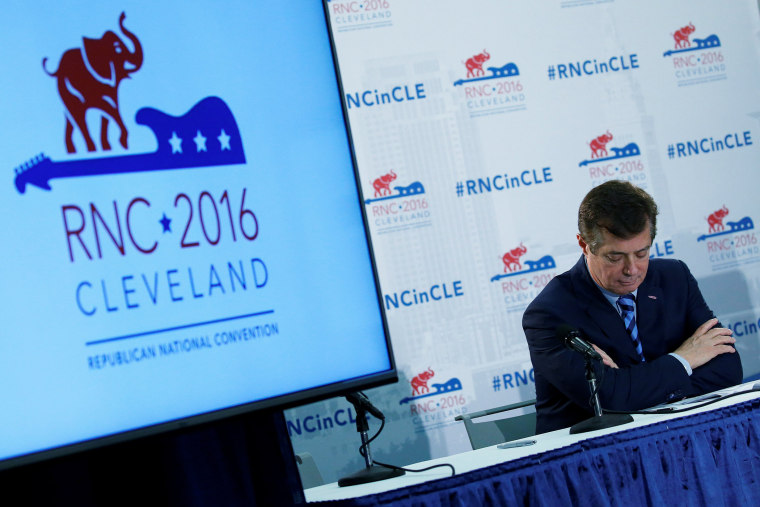On Feb. 29, 2016, Mr. Manafort, the former lobbyist and Republican operative who now sits at the nexus of investigations into Russia's meddling in the presidential election, reached out to Mr. Trump with a slick, carefully calibrated offer that appealed to the candidate's need for professional guidance, thirst for political payback -- and parsimony.The letters and memos provide a telling glimpse into how Mr. Trump invited an enigmatic international fixer, who is currently under investigation by United States intelligence services, a Senate committee and investigators in Ukraine, to the apex of his campaign with a minimum of vetting. The answer? Through family and friends, handshakes and hyperbole.
So why did Manafort get hired? That's a very good question. The upshot of the [New York Times'] story, though it doesn't say so directly, is that there's no clear explanation at all. The go between, according to Thrush's article, was Tom Barrack, a mutual friend who seems like a surprisingly normal figure for the Trump world. Who knows whether there's a story there? The key thing seems to be that Manafort really, really wanted the gig. And he was willing to do it for free, even though there's nothing in Manafort's history that suggests any interest in doing anything for free ever.Why was Manafort so focused on getting in with Trump?
